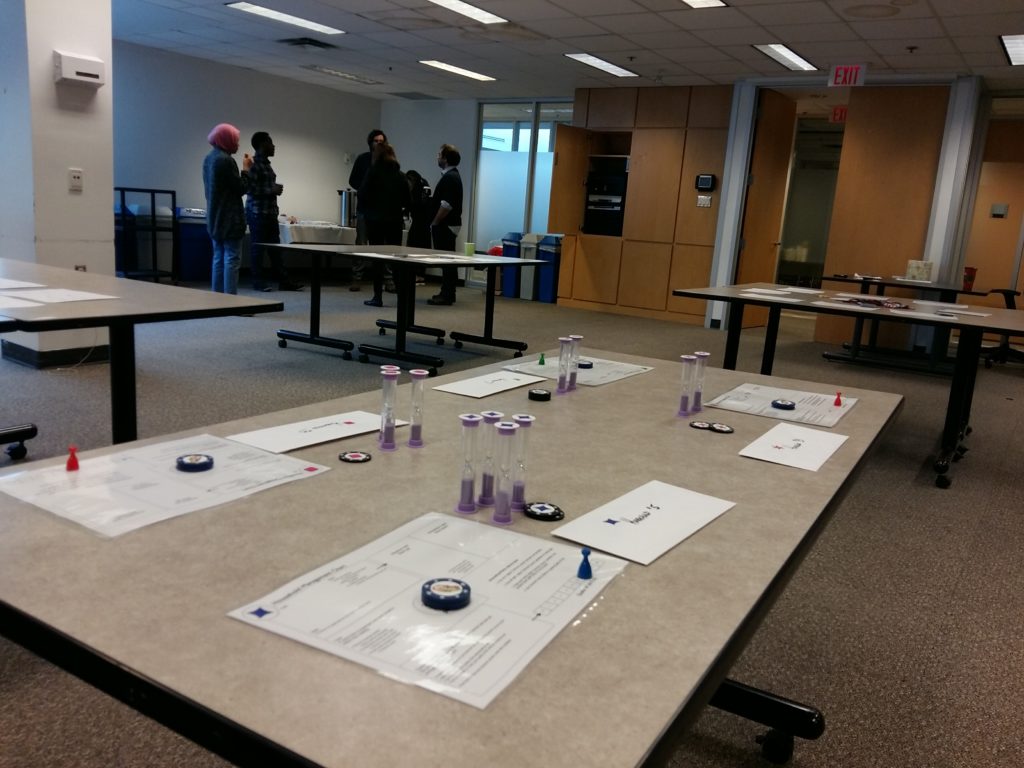On February 23 and 24, Lessons Learned delivered our first full-scale professional development course.
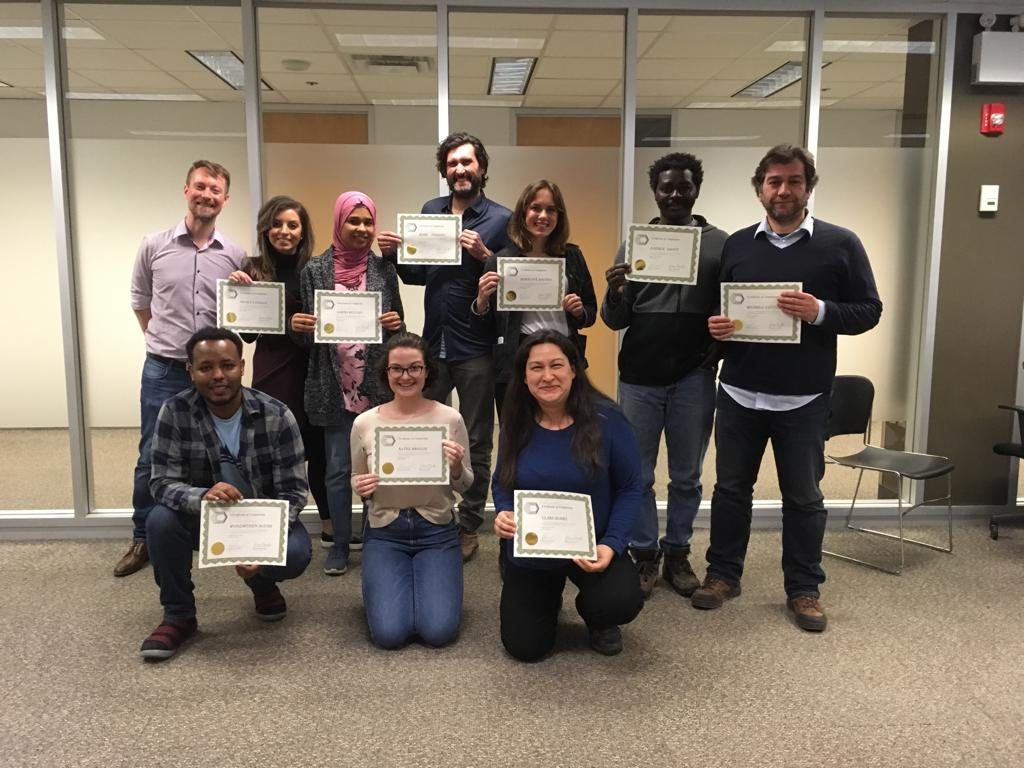
The course, titled “‘The Day My Life Froze’: Urban Refugees in the Humanitarian System”, was delivered in a promotional capacity to students of York University in Toronto, in collaboration with the Centre for Refugee Studies Student Caucus.
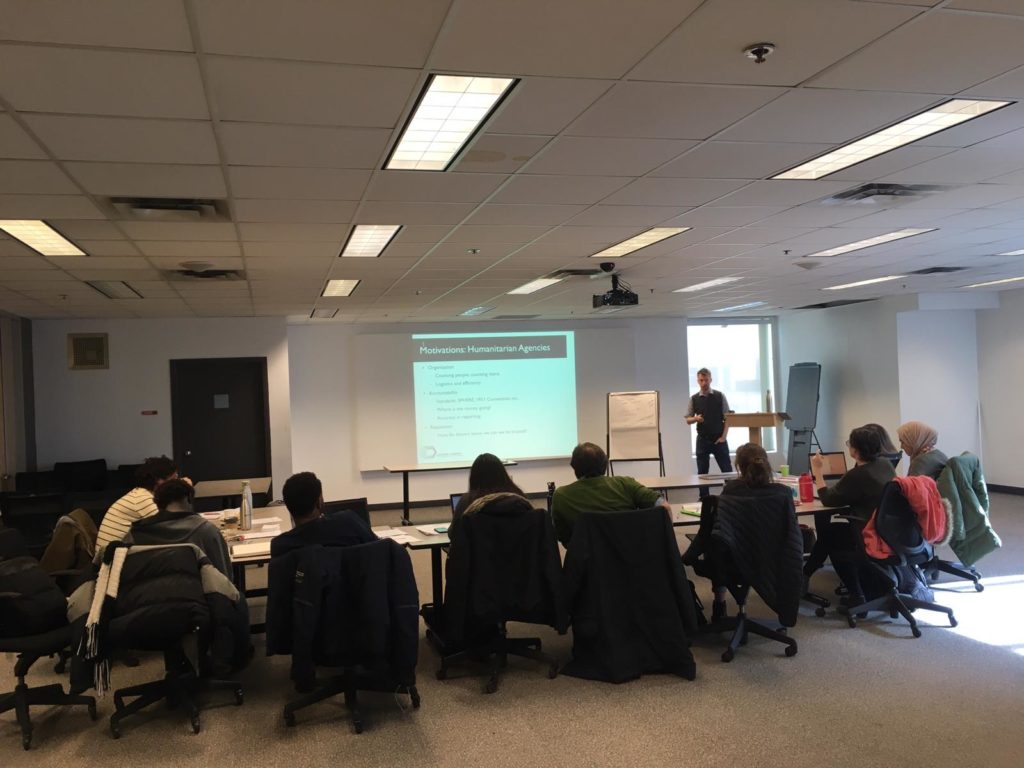
The course was very well received and, based on student evaluations and our own impressions, a great success. Participants were engaged in the material and reported learning from both the lectures and simulation. The simulation in particular was well received by the students; the half-day exercise both reinforced lessons from the lectures and provided new emergent lessons as well. In the debrief, participants taking on “head of household” roles were able to specify a wide range of learning moments, including:
- the challenges of membership a vulnerable community in a resource-scarce environment
- the negative effects of an uncertain economy
- the difficulty of separating rumour from fact, even when communicating with other community members
- how unclear the operation of the humanitarian system can be, and how little it contributes to addressing day to day needs
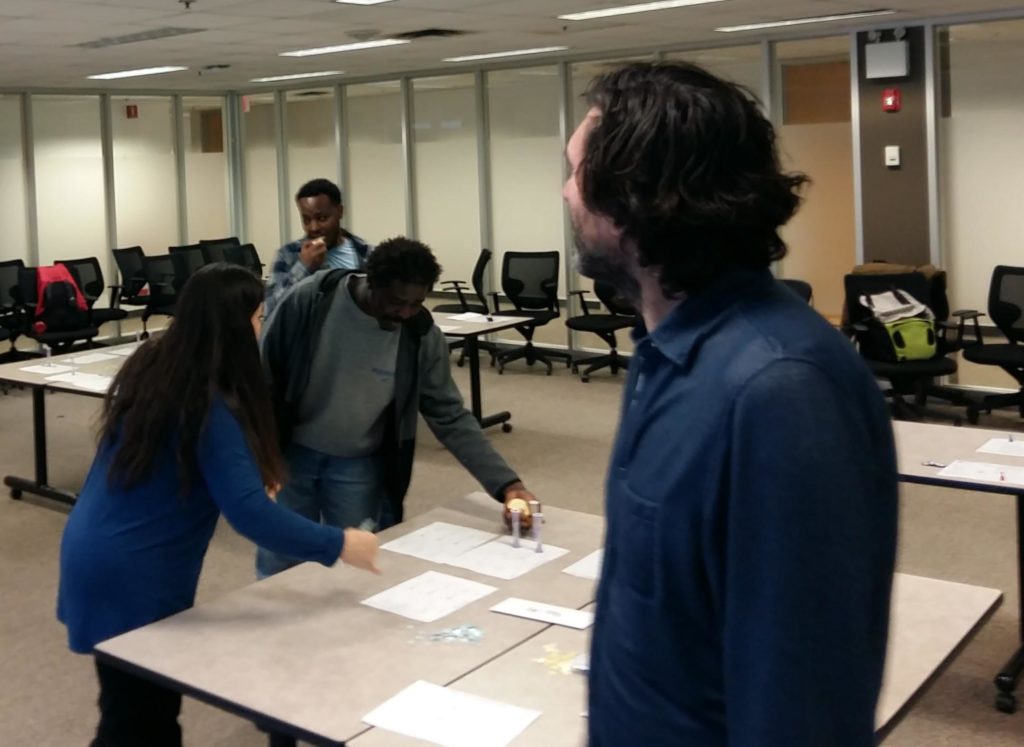
Humanitarian actors, conversely, found learning opportunities in the challenges they faced. They reported:
- struggling to apply incomplete biodata and poor understandings of refugees’ needs to determine vulnerability
- finding it difficult to improve data flawed collection tools and to keep databases up to date given time pressures
- having difficulty determining size and delivery method of aid packages in an uncertain funding environment
As an instructor, it was especially rewarding to see students recognizing the challenges of applying the lessons from the lectures, when contextualized among stress, limited time and resources, and mutually incomplete understandings of the systems at work. Students were very respectful of the subject matter and were well able to balance their curiosity about the simulated “world” with the real-life gravity of the topics they explored.
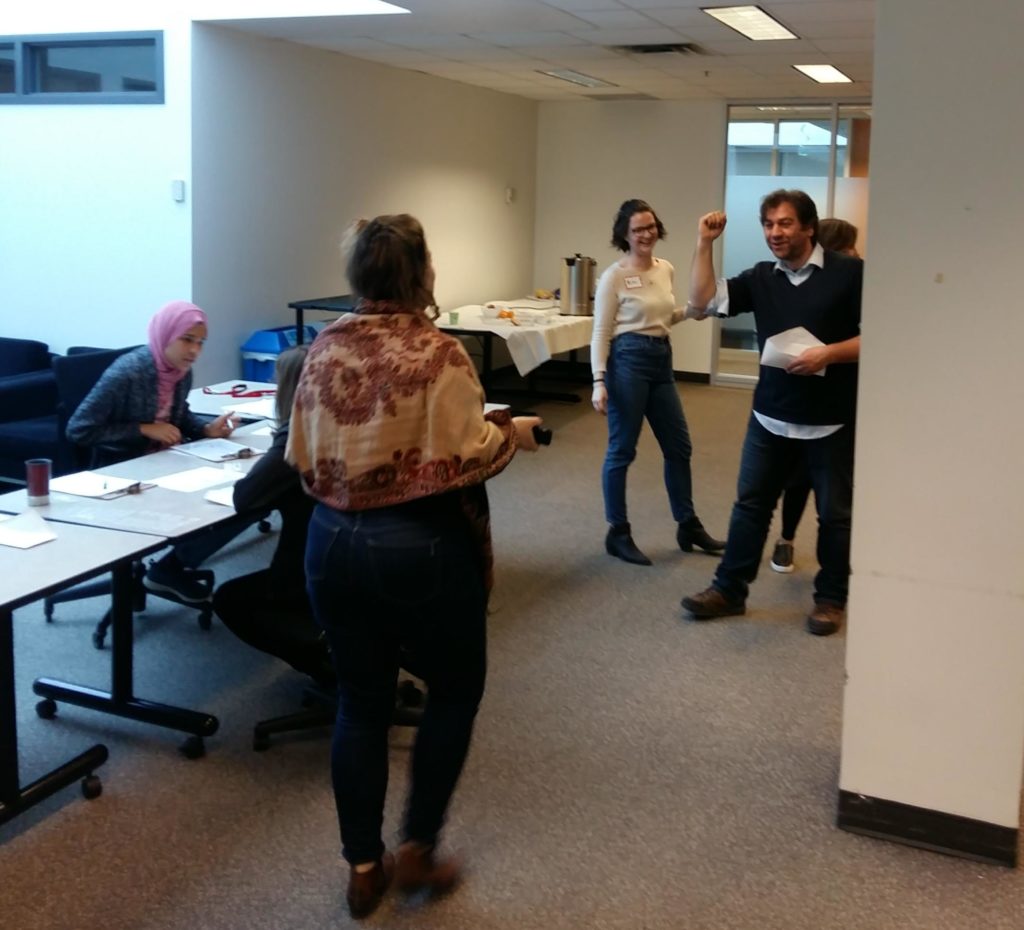
We were very fortunate to have an excellent group of students. Their insightful commentary on course topics (and the course itself!) was a joy to take part in.
While the simulation had been tested previously, this was the first run situated alongside the supporting lectures and delivered to our target audience. Of course, there were things to be learned from the delivery as well! We wouldn’t be Lessons Learned without acknowledging our own take-aways:
- The course fell on the tail end of reading week, so we had a light student load. However, the interactive sessions and simulation ran well with the reduced numbers and students did not seem to miss out on learning opportunities.
- In the two-day format, we had one day of lecture and one of the simulation. The lecture day was broken up with several interactive activities, but participants still reported feeling the lectures were teacher-focused and left them wanting more educational activities. We are in the process of putting together some more “mini-simulations” to help illustrate points and fortify learning.
- Our day of lectures ran a bit long and students were feeling a bit overwhelmed by the end. In future runs of the course, they will be broken into shorter days (with more interactive sessions).
- Similarly, time was an issue and a few important points had to be skipped. Breaking our long day into two, with more breaks for activities, should help with this.
- Some students felt that the simulation focused too heavily on resource economies with too much abstraction of the emotional impact of displacement. This point is very interesting, as the balance of participant experience and respect for displaced peoples’ experiences is very delicate in this type of simulation. We are considering our options on how to better deliver this element, whether it be written into the simulation component or explored in smaller activities being planned.
I was supported in this delivery by Johanna Reynolds, LLST’s excellent new Course Director. Thanks to CRS for hosting us and the Student Caucus for facilitating, as well as Nicole Vassiliou for volunteering her time to help make this a success!
